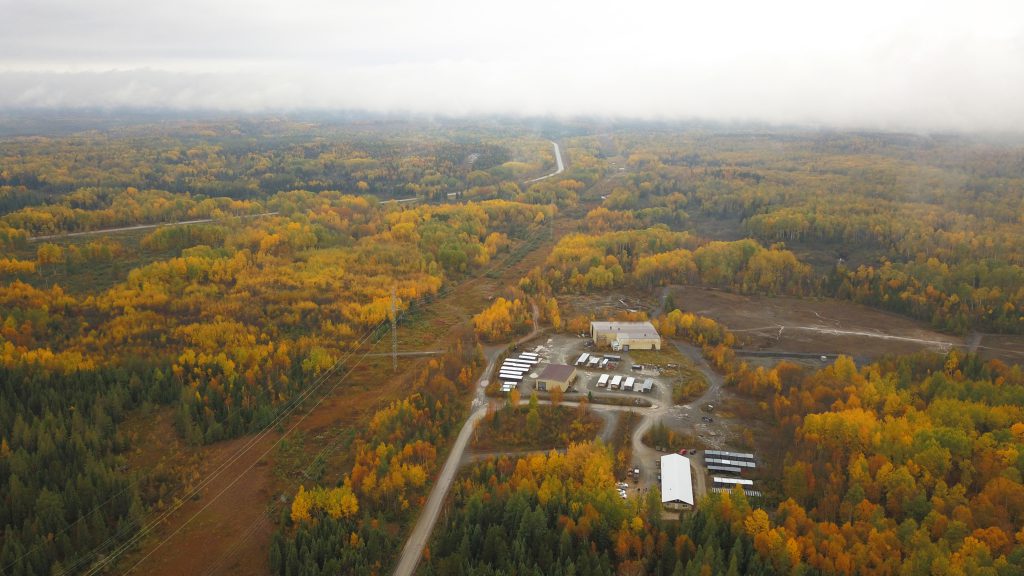Radisson Mining expanding O’Brien drill program, Quebec

Radisson Mining Resources Inc. [TSXV-RDS; OTCQB-RMRDF] has expanded its drill program to approximately 35,000 metres at its high-grade O’Brien gold project located along the Larder Lake-Cadillac break, halfway between Rouyn-Noranda and Val d’Or in Quebec, Canada.
Expanded drill program highlights: 60-70% of drilling will focus on resource expansion between trends 0 and 4: Approximately 15,000 metres for 27 drill holes; 30-40% of drilling will focus high-priority stepout and exploration targets: Historic O’Brien Deep and Trend 1 Deep: 8,200 metres for six holes; New Alger target: 2,400 metres for five holes.
Fully financed for 35,000 metres program (22,000 m left to complete): To date 24 drill holes have been completed for a total of 12,960 metres.
Assays are pending for 5,804 metres in 11 drill holes, including eight intersections of visible gold on trends 1, 2 and 3 (visible gold in hole OB-24-320 and OB-24-317).
With approximately $6.5 million in treasury, Radisson is fully financed to complete the remaining portion of the 35,000-metre drill program.
This substantial expansion to the drill program will allow the company to accelerate both resource expansion and exploration efforts, simultaneously. The expanded program will dedicate 60-70% of drilling to growing the current resources in the near-high-grade mineralized zones. Concurrently, the company will prioritize a high-potential 2-km target outlined earlier in 2024 in the northwest region of the 74 km2 New Alger area with the objective of making a new discovery.
In addition, the company will be drill testing below the historic O’Brien mine underground workings and, 300 metres below the current resources, on trends 0 and 1. This two-pronged approach underscores Radisson’s commitment to unlocking the full value of the highly prospective O’Brien gold project through resource growth and further exploration upside.
A total of 24 drill holes (12,960 m) have been completed to date as part of the initial phase of the program. The company expects to report additional assay results from phase I in the coming weeks.
“We are excited to expand our drill program to 35,000 metres at O’Brien,” commented Denis V. Lachance, interim president and CEO. “This substantial increase allows us to focus on growing the current resources, while also pursuing new discoveries across our prospective New Alger area and, for the first time, at depth below the prolific historic O’Brien mine, trend 0 and trend 1, where we see strong potential for gold mineralization. With the recent acceleration and upsize of our fully funded drill campaign, we look forward to an abundance of drill results beginning in the coming weeks.”
Exploration potential – O’Brien project: The historic O’Brien mine is considered to be Quebec’s highest-grade gold producer during its production between 1926 and 1957 returning over 587,121 ounces of gold at 15.25 grams per tonne Au. Based on the historic data and geometry of the O’Brien mine, it is interpreted that 90% of gold production came from a high-grade trend formed at the crossing of a conjugated system of veins. While the O’Brien mine currently hosts historic resources, the depth extension of that high-grade trend has never been tested below the bottom of the mine sitting at 1,050 metres depth. As part of the expanded program, two pilot holes, which could eventually accommodate wedges, have been planned to test the vertical extension of the prolific O’Brien mine.
O’Brien East – area hosting majority of current resources: The resource expansion will focus on the highest priority targets out of more than 100 targets established near the current resources at O’Brien East, primarily within vertical depths between surface and 500 m within less explored areas, such as high-grade trends 3 and 4. Underexplored sectors, such as the sector between high-grade trends 1 and 2, will also be targeted.
Given the current geological understanding and refined geological model, the company believes there is strong potential for additional high-grade gold trends to be discovered along the 5.2-km prospective land package on the prolific Larder Lake-Cadillac break (LLCB). Mineral resources are open for an additional 750 m to the east and underexplored for 2.5 km to the west of the historic O’Brien mine. The continuity of mineralized zones along steeply plunging trends (80-85 degrees) provides good predictability for resource growth and exploration potential.
The high-grade trends which remain open in the resource area are: Trend 0: Open to the west and below 750 m; Trend 1: Open laterally and below 950 m; Trend 2: Open laterally and below 900 m; Trend 3: Open laterally and below 500 m; Trend 4: Open laterally and below 500 m.
In 2023, modelling and reinterpretation of drilling data available on the LLCB portion of O’Brien West allowed the company to establish inferred resources totalling 293,000 tonnes at 7.59 g/t gold for 72,000 ounces.
With approximately 2.5 km of ground along the prolific LLCB having seen limited exploration work in recent years, O’Brien West also remains open in all directions. Exploration targets, following on an historic intercept of 5.63 g/t gold over 9 metres, have been established on this sector and are expected to eventually be integrated into the drill program.
Radisson is focused on its 100%-owned O’Brien project, located in the Bousquet-Cadillac mining camp along the world-renowned Larder Lake-Cadillac break in Abitibi, Quebec. The Bousquet-Cadillac mining camp has produced over 25 million ounces of gold over the last 100 years.
